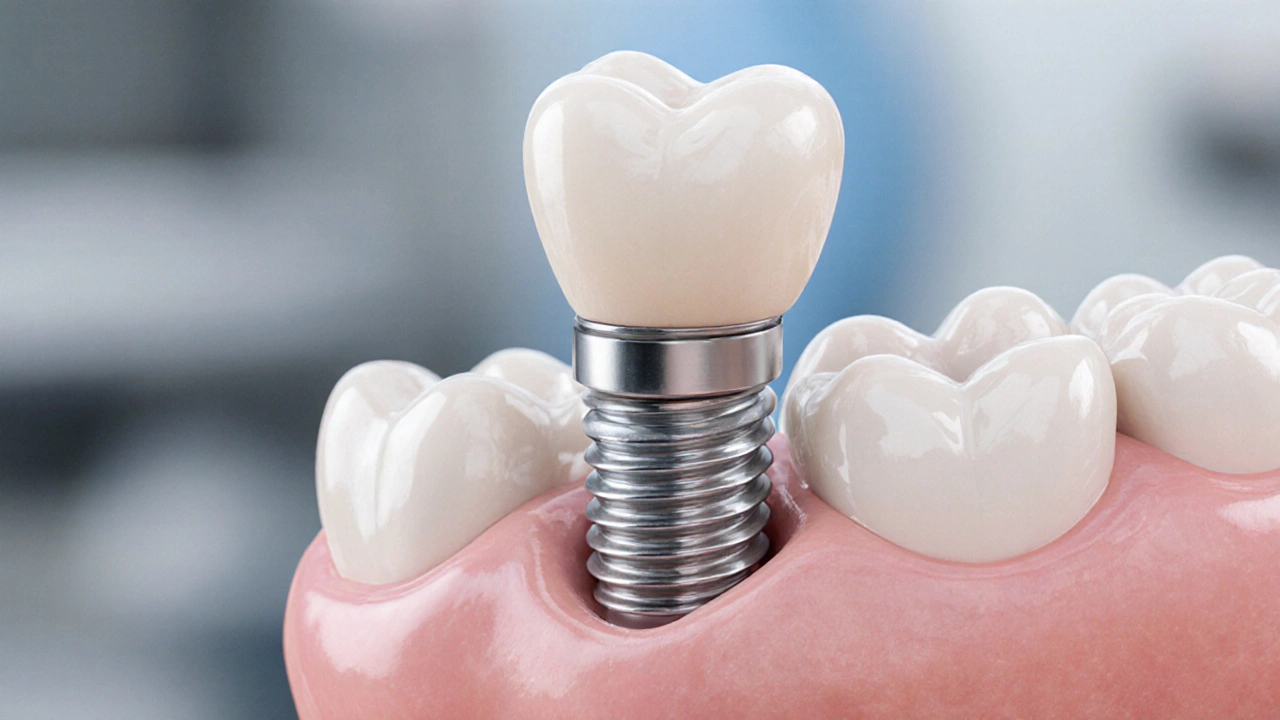Dental Implant Care: Essential Tips for Long‑Lasting Results
When talking about dental implant care, the set of practices that keep implants healthy after placement. Also known as implant aftercare, it helps you avoid common complications and enjoy a stable bite for years.
Key Areas of Dental Implant Care
Dental implant care starts with understanding what you’re maintaining. Dental implants, artificial tooth roots made of titanium that fuse with jawbone are a permanent solution for missing teeth, but they need support just like natural teeth. The implant’s success hinges on proper placement, good bone quality, and diligent aftercare. When you follow the right steps, the implant integrates with bone and functions just like a real tooth.
One of the biggest factors is oral hygiene, daily cleaning habits that remove plaque and bacteria. Brushing twice a day with a soft‑bristle brush, flossing around the implant, and using an antibacterial mouthwash create a clean environment. Clean surfaces prevent the buildup that can lead to gum inflammation and bone loss. In simple terms, good oral hygiene is the first line of defense against implant failure.
Sometimes the jawbone isn’t thick enough to hold an implant securely. That’s where bone grafting, a surgical procedure that adds bone or bone‑like material to strengthen the jaw comes in. The graft provides a scaffold for new bone to grow, improving stability. Successful grafting means the implant can bear chewing forces without shifting. Many patients see better outcomes when grafting is combined with proper aftercare.
After the surgery, preventing post‑surgery infection, the invasion of harmful bacteria at the implant site is critical. Your dentist will likely prescribe antibiotics for a few days, but you also need to keep the mouth clean and avoid irritating foods. Infections can cause pain, swelling, and even implant loss, so early detection and swift action are vital.
Diet plays a hidden but powerful role. Stick to soft foods for the first 24‑48 hours—think yogurt, smoothies, and mashed potatoes. Avoid chewing on the surgical side, and stay away from very hot, spicy, or acidic foods that can irritate the wound. Gradually reintroduce tougher foods as the implant heals, but always chew gently to protect the new joint.
Smoking and excessive alcohol use can sabotage your healing. Nicotine reduces blood flow, making it harder for bone to integrate with the implant. Alcohol can interfere with the immune response, raising infection risk. Cutting back—or quitting—while you recover gives the implant the best chance to bond strongly.
Regular follow‑up appointments let your dentist monitor progress. During visits, the dentist checks gum health, measures any movement, and may take X‑rays to see how the bone is fusing. These check‑ups catch problems early, allowing simple adjustments before they become major issues.
Once the implant fully integrates, a prosthetic crown or bridge is attached. This final piece restores chewing function and looks natural. Proper fitting and occasional polishing keep the restoration looking good and prevent plaque from hiding under the crown.
All these pieces—cleaning, diet, lifestyle, and professional visits—connect to form a solid care routine. Below you’ll find articles that dive deeper into each step, share real‑world tips, and answer common questions about maintaining healthy dental implants.
How Long Do Dental Implants Last? Lifespan, Care & Costs Explained
Discover how long dental implants truly last, the factors that affect their lifespan, and practical tips to keep them healthy for decades.

